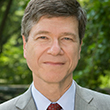
Climate Change Science and Negotiations课程:前往报名学习
Humanity is up against a tight timeline to address climate change. Learn how we can deeply decarbonize the global energy systems, and put the world on a 2°C pathway.
开设学校:SDGAcademy;学科:理学、
Humanity is up against a tight timeline to address climate change. Learn how we can deeply decarbonize the global energy systems, and put the world on a 2°C pathway.
-Introduction
-Pre-Course Survey
-Video Lectures
--The Challenge of Human Induced Climate Change
--The History of Climate Change Science
--Note
-Course Readings and Graphs
-Week 1 Quiz
-Video Lectures
--The Greenhouse Gases and Feedbacks
--Note
--Other Drivers of Climate Change
--Recent History of Climate Change
--Note
-Course Readings and Graphs
-Week 2 Quiz--作业
-Welcome Message from Emmanuel Guerin
--Welcome Message from Emmanuel Guerin
--Note
-Video Lectures
--The Business as Usual Trajectory
--The Consequences of the Business as Usual Trajectory
-- Limiting the Mean Surface Temperature Increase Below 2- Degrees Celsius vs. Pre-Industrial Levels
--Debates Over the 2-Degree Celsius Limit
-Course Readings and Graphs
-Week 3 Quiz--作业
-Video Lectures
--What is the Global Carbon Budget for the 2-Degree Limit?
--What is the Global Emissions Reduction Pathway for the 2-Degree Limit?
--How Does it Compare with the Potential Emissions from Fossil Fuel Reserves and Resources?
-Course Readings and Graphs
-Week 4 Quiz--作业
-Video Lectures
--Energy-Related CO2 Emissions Trends
--The 3 Pillars of the Deep Decarbonization of Energy Systems
--A Global Mitigation Scenario
-Course Readings and Graphs
-Week 5 Quiz--作业
-Video Lectures
--The Need for Accelerated Development of Low-Carbon Technologies/Key Technologies for RDD&D
--Grid Management of Power Systems with High Penetration of Renewable Energies
--Carbon Capture & Sequestration
--Electric Vehicles and Advanced Biofuels
--The Role of Technology Roadmaps and Roundtables
-Course Readings and Graphs
-Week 6 Quiz--作业
-Video Lectures
--Why Countries Need Deep Decarbonization Pathways to 2050
--The Deep Decarbonization Pathways Project
--What We Learn From Country-Level Deep Decarbonization Pathways
--Lessons for the Global Agreement on Climate Change at COP21 in Paris in 2015
-Course Readings and Graphs
-Week 7 Quiz--作业
-Video Lectures
--A World Without Modern Energy
--How Climate Change Threatens the Poorest of the Poor
--Note
-Course Readings and Graphs
-Week 8 Quiz--作业
-Video Lectures
--Basic Principles of a Global Agreement
--Note
--Note
--Problem-Solving Versus Negotiating
-Course Readings and Graphs
-Week 9 Quiz--作业
-Video Lectures
--The Three-Tiered Structure of Mitigation Commitments
--Note
--Can Everybody Win? Should Everybody Win?
--Note
--Achieving Large Global Goals
--Note
-Course Readings and Graphs
-Final Exam--作业
-Post-Course Survey
--Survey
Jeffrey D. Sachs is a world-renowned professor of economics, leader in sustainable development, senior UN advisor, bestselling author, and syndicated columnist whose monthly newspaper columns appear in more than 100 countries. He is the co-recipient of the 2015 Blue Planet Prize, the leading global prize for environmental leadership. He has twice been named among Time Magazine’s 100 most influential world leaders. He was called by the New York Times, “probably the most important economist in the world,” and by Time Magazine “the world’s best known economist.” A recent survey by The Economist Magazine ranked Professor Sachs as among the world’s three most influential living economists of the past decade. Professor Sachs is widely considered to be one of the world’s leading experts on economic development, global macroeconomics, and the fight against poverty. His work on ending poverty, overcoming macroeconomic instability, promoting economic growth, fighting hunger and disease, and prom

